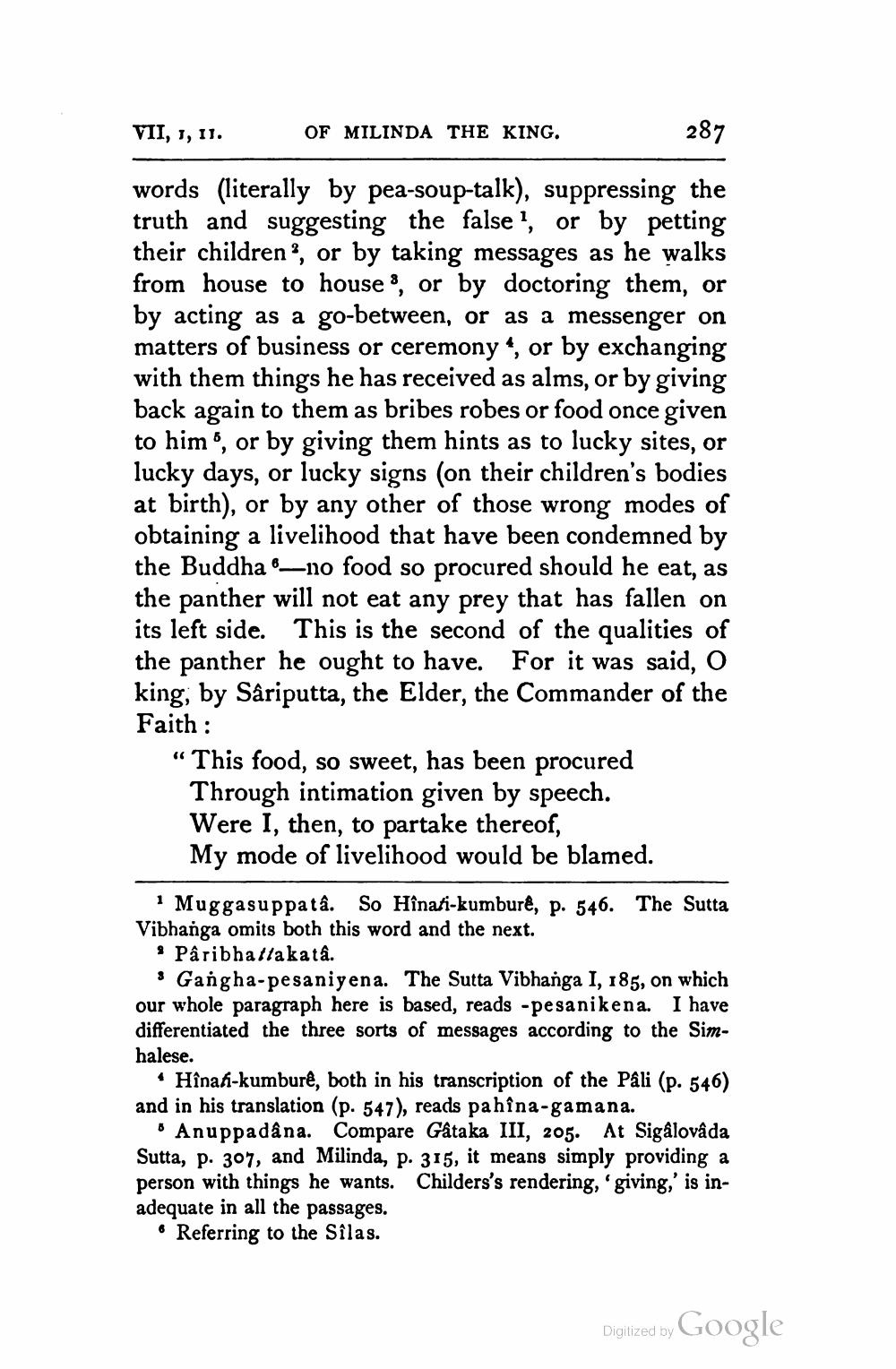________________
VII, 1, 11.
OF MILINDA THE KING.
287
words (literally by pea-soup-talk), suppressing the truth and suggesting the false', or by petting their children?, or by taking messages as he walks from house to house, or by doctoring them, or by acting as a go-between, or as a messenger on matters of business or ceremony", or by exchanging with them things he has received as alms, or by giving back again to them as bribes robes or food once given to him, or by giving them hints as to lucky sites, or lucky days, or lucky signs (on their children's bodies at birth), or by any other of those wrong modes of obtaining a livelihood that have been condemned by the Buddha 6–10 food so procured should he eat, as the panther will not eat any prey that has fallen on its left side. This is the second of the qualities of the panther he ought to have. For it was said, O king, by Sariputta, the Elder, the Commander of the Faith : “This food, so sweet, has been procured
Through intimation given by speech. Were I, then, to partake thereof, My mode of livelihood would be blamed.
1 Muggasuppatâ. So Hînati-kumburē, p. 546. The Sutta Vibhanga omits both this word and the next.
. Pâribha tlakata.
s Gangha-pesaniyena. The Sutta Vibhanga I, 185, on which our whole paragraph here is based, reads -pesanikena. I have differentiated the three sorts of messages according to the Simhalese.
· Hînan-kumbure, both in his transcription of the Pali (p. 546) and in his translation (p. 547), reads pahîna-gamana.
Anuppadâna. Compare Gâtaka III, 205. At Sigålovâda Sutta, p. 307, and Milinda, p. 315, it means simply providing a person with things he wants. Childers's rendering, 'giving,' is inadequate in all the passages.
• Referring to the Sîlas.
Digitized by Google




